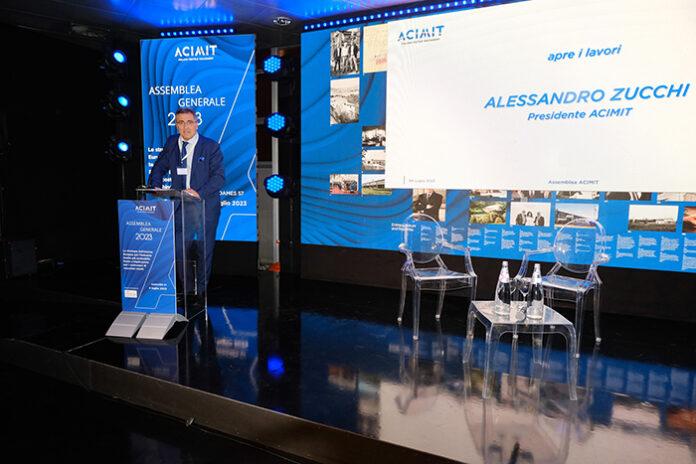Innovation is no doubt at the heart of the challenges that await Italy’s textile machinery industry in the near future, a fact that was stated at the General Assembly of ACIMIT, the Association of Italian Textile Machinery Manufacturers, held on July 4th. President Alessandro Zucchi presented industry data for the Italian textile machinery sector for 2022, showing that production increased by 13%, for a value of 2.7 billion euros, while exports grew by 15% (2.3 billion euros).
2022 marked yet another year of growth for the sector, following that which was recorded in 2021. However, for the second half of the year, uncertainties characterizing the current macroeconomic outlook also proved to affect Ital’s textile machinery sector, showing signs of a general slowdown. The results of the Italian edition of ITMA, the industry’s preeminent global exhibition held last June in Milan, will hopefully play an essential role in providing further growth for 2023. The fair was certainly successful both in terms of the many technology innovations presented and for the number of visitors in attendance (over 111,000 units). The sector now awaits to quantify this effect on upcoming tangible orders.
Italian machinery manufacturers have played a decisive role in presenting new technology trends at ITMA, with Zucchi stating that, “Innovation is the discriminating element between those who look to the future with optimism and those who will instead be forced to follow in pursuit.” In the future, innovation will continue to make a difference in our sector, above all in light of strategies put forward by the European Union regarding the so-called Green Deal.
Zucchi goes on to explain that, “With the strategies for ‘sustainable and circular products’ launched by the European Commission to implement Green Deal objectives, these initiatives – which are currently voluntary – will be included in a defined legislative and regulatory scenario. This is an approach that covers a product’s entire life span, from design to waste management. The challenge is certainly complex, and textile companies can face it if supported by innovative machinery and systems.” The dialogue begun by Italian textile machinery manufacturers with the entire textile supply chain has generated the Green Label, the Digital Ready initiative, and more recently the Recyclability Index for machinery, representing an indispensable condition for a more eco-friendly fashion industry, one that is increasingly efficient and circular in outlook.
During the private meeting of ACIMIT’s General Assembly, Marco Salvadè was appointed new President of ACIMIT to succeed Alessandro Zucchi.










